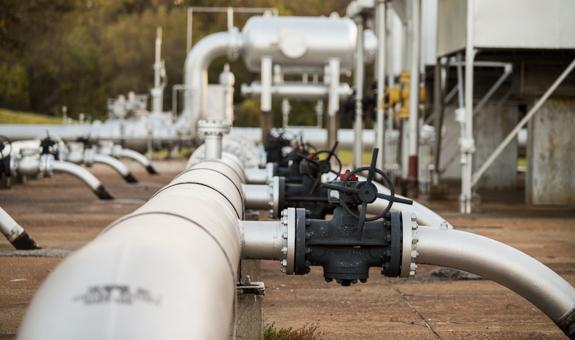US Pipeline Operators Anticipate Strong Demand for Rest of 2022
(Reuters) — U.S. pipeline operators and oil refiners expect energy consumption to be strong for the second half of 2022, even though analysts and industry watchers have worried that demand could falter if the global economy enters a recession or high fuel prices deter travelers.
The company outlooks suggest a stronger view than recent data showing weakness in U.S. fuel demand, particularly in gasoline, where consumption recently hit its lowest level since February even though this is the middle of the peak summer driving season.
U.S. gasoline product supplied over the past four weeks recently fell below 2020's level for the same time of year, when the United States was in the depths of the pandemic.
Energy companies including Energy Transfer LP and PBF Energy Inc. say energy demand will be strong in the second half of 2022, according to a Reuters review of company earnings calls.
"Management sees what's going on on the ground so any time they're calling out positivity when demand data has been showing otherwise, we find that interesting," said Kian Hidari, an analyst at Tudor, Pickering, Holt and Co. "It's still a strong environment for gasoline compared to historical levels."
U.S. refiners are also benefiting from high exports of transportation fuels to Latin America, and plants are expected to run at high utilization rates to restock inventories that were drawn down when fuel supply cratered earlier this year.
Refiner exports of finished petroleum products were largely in line with five-year seasonal averages at 3.02 million barrels per day (MMbbl/d) in May, the latest data available, according to the U.S. Energy Information Administration. That was nearly 65% higher than the pandemic low reached in May 2020.
U.S. oil output has recovered to 12.1 MMbbl/d, helping boost pipeline and terminal volumes for many midstream companies for the second quarter from a year ago. Energy Transfer reported a stronger-than-expected second quarter performance and boosted its guidance for the rest of the year, said co-CEO Thomas Long.
Of the 16 midstream companies that reported earnings last week, more than half revised guidance higher, said James Mick, Portfolio Manager at Tortoise Capital Advisors.
The four-week average of implied demand for gasoline fell to just under 8.6 MMbbl/d in the week to July 29, lowest since February, according to EIA data, though the weekly figures can be volatile.
"We are constructive on the outlook for transportation fuels, supported by low product inventories and healthy global demand," HF Sinclair Corp. CEO Michael Jennings said on a call with analysts on Monday.
Inflation is soaring this year, but with U.S. job growth unexpectedly accelerating in July, economists are less worried about an impending recession.
The only U.S. refiner to note some demand tapering in its earnings call was CVR Energy Inc., specifically in the mid-continent, which includes states such as Kansas and Oklahoma, Hidari said. The company said it has seen some demand destruction as consumers shy away from driving because of retail gasoline prices that have reached over $4 per gallon.
Related News
Related News

- Kinder Morgan Proposes 290-Mile Gas Pipeline Expansion Spanning Three States
- Enbridge Plans 86-Mile Pipeline Expansion, Bringing 850 Workers to Northern B.C.
- Intensity, Rainbow Energy to Build 344-Mile Gas Pipeline Across North Dakota
- Tallgrass to Build New Permian-to-Rockies Pipeline, Targets 2028 Startup with 2.4 Bcf Capacity
- U.S. Moves to Block Enterprise Products’ Exports to China Over Security Risk
- U.S. Pipeline Expansion to Add 99 Bcf/d, Mostly for LNG Export, Report Finds
- A Systematic Approach To Ensuring Pipeline Integrity
- US Poised to Become Net Exporter of Crude Oil in 2023
- EIG’s MidOcean Energy Acquires 20% Stake in Peru LNG, Including 254-Mile Pipeline
- Enbridge Sells $511 Million Stake in Westcoast Pipeline to Indigenous Alliance





Comments